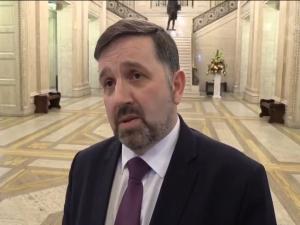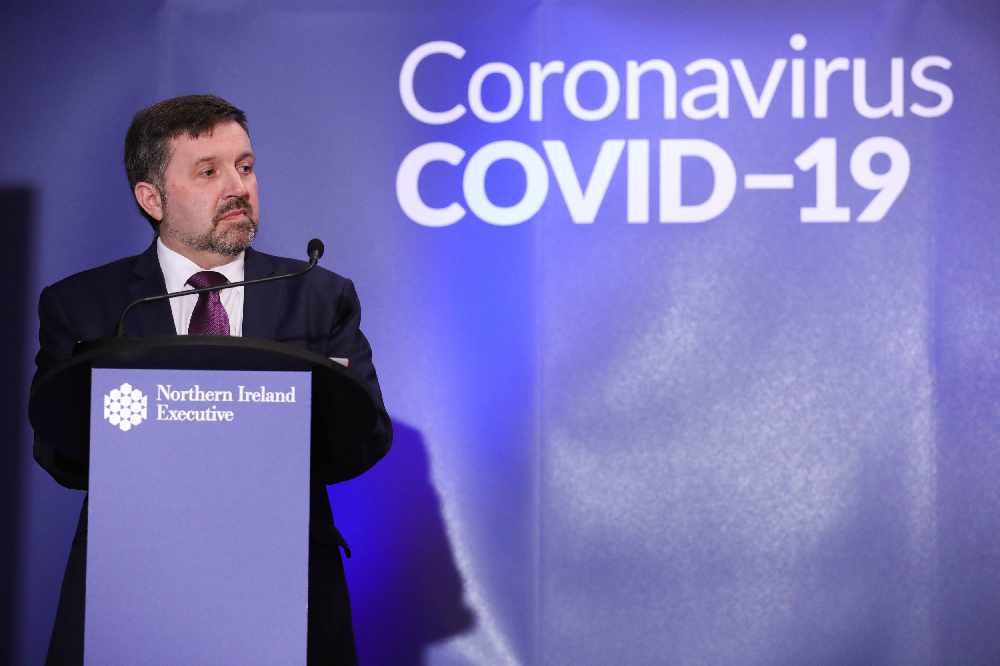
Q Radio News/PA
The chairs of Northern Ireland’s health and social care bodies have criticised the proposed health budget, saying it falls short of what is needed.
In a joint submission, the 17 chairs of all the health trusts and HSC bodies have raised concerns that the proposed funding for next year is non-recurrent.
Health chiefs say this impacts on the ability to recruit staff and make long-term plans for the health system.
In a significant intervention, the group of public health officials outlined their key concerns over the Department of Finance’s draft budget for 2021/2022.
In a response to the department’s budget consultation, the group said the proposed budget fails to meet existing deficits and cost pressures.
The HSC Chairs’ Forum said they are unable to recruit and train new nurses and doctors with one-off allocations as there is uncertainty around the following year’s budget.
The submission says the health budget will get a £495.2 million uplift for the year, but “only £52.1 million of the total £495.2 million will be allocated on a recurrent basis”.
“This will not be sufficient to even cover pay (to include national minimum wage) and price inflation, which are recurrent inescapable pressures and are estimated to cost around £150 million,” the joint submission stated.
“It should be noted that previous annual budgets have included a much higher percentage of recurrent monies. For example, last year DOH (Department of Health) received a budget uplift of approximately £400 million, of which £344 million was recurrent.”
It went on to say: “HSC organisations cannot continue to rely on in-year non-recurrent funds, instead recurrent multi-year budgets are needed to improve financial resilience and planning.”

Minister Swann - raised concerns about budgets earlier this month.
The submission states that waiting times have grown over the last five years because in “most specialties annual demand outweighs current capacity in trusts”.
The chairs said that to address address the underlying capacity, significant recurrent investment in staff and physical infrastructure is needed.
They added: “Service realignment and reorganisation between Trusts will be required and immediate steps need to be taken to commission and fund additional medical and nursing training places now.
“Covid-19 has further exposed the risks associated with a depleted workforce, lack of investment in ageing infrastructure, and new technologies.
“There is significant pressure on hospital and community beds, and bed occupancy levels are considerably higher than those seen in high performing health systems.
“This, combined with shortfalls in community provision, has created a system with little or no spare capacity to deal with normal winter peaks, much less a pandemic.”
Earlier this month, Minister for Health Robin Swann raised concerns about non-recurrent budgets.
Mr Swann called on the Treasury to grant flexibility to allow for a multi-year Spending Review.
Mr Swann told the Assembly: “Non-recurrent, one-off allocations do not provide a basis for addressing the major structural problems afflicting health and social care – especially staffing and waiting times.
“We need a sustainable long-term fix for these issues and that cannot be achieved with here today, gone next year monies.”


 UK and Irish ministers to meet amid row over migration
UK and Irish ministers to meet amid row over migration
 Three men set to go on trial for murder of journalist Lyra McKee
Three men set to go on trial for murder of journalist Lyra McKee
 Swann refuses to rule out resigning if budget is not changed
Swann refuses to rule out resigning if budget is not changed
 Fresh inquests ordered into deaths of 15 killed in McGurk’s bomb blast
Fresh inquests ordered into deaths of 15 killed in McGurk’s bomb blast